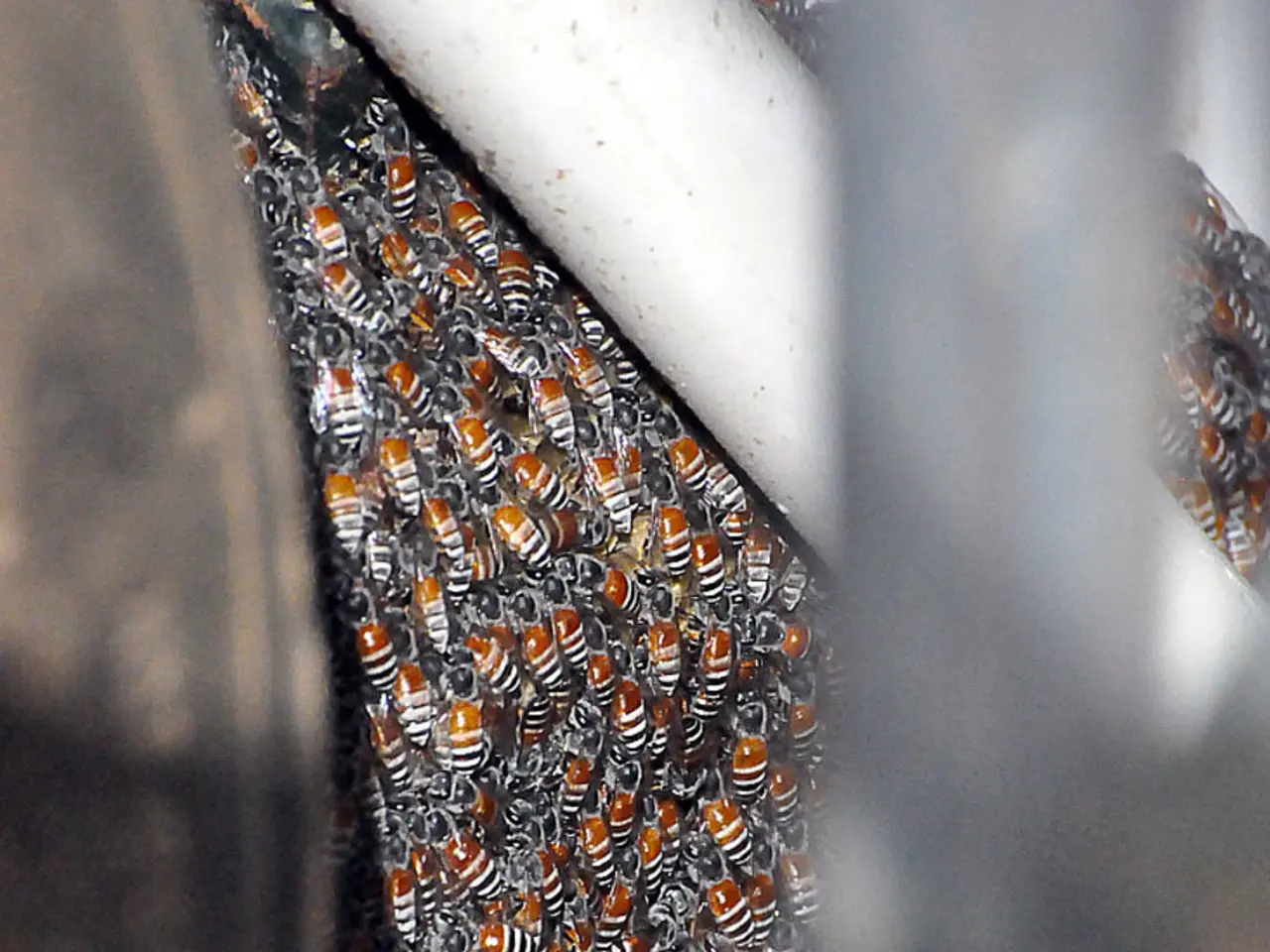Increased Interest in Beekeeping - Kiekeberg Shares Expertise - Increase in interest in beekeeping - Kiekeberg shares expertise
In the heart of Germany, the open-air museum at Kiekeberg is home to approximately half a million honeybees, buzzing among old apple and pear trees and various plants. These bees, tended by Hermann Benesch, the chairman of the local beekeeping association, play a crucial role in the ecosystem and contribute to the nation's honey production.
Bees have a working radius of up to three kilometers, making them essential pollinators for crops and ecosystems. However, the labor-intensive nature of beekeeping often leads to many beginners giving up after just two years. Benesch, with his extensive experience, offers beekeeping courses that span an entire bee year, educating up to 35 participants at a cost of 240 euros per course.
The peak of the bee colonies at Kiekeberg is around the beginning of August. Each colony can produce 30 to 50 kilograms of honey per year, with two harvests. But the demand for honey in Germany is high, with per capita consumption close to 949 grams. In 2023, Germans consumed about 80.2 thousand tons of honey, a slight decrease from the previous year’s 88.6 thousand tons.
Europe contributes approximately 32% of global honey production, with Germany being one of the leading producers in the region. However, Germany is also a major importer of honey within Europe, reflecting a gap between domestic production and consumption. Regional honey covers only 21 to 25 percent of Germany's demand.
Consuming regional honey is important for several reasons. It supports local beekeepers and agricultural biodiversity, reduces carbon footprint by minimizing long-distance transportation, and ensures fresher, higher-quality honey that is traceable to its origin. This is especially relevant given the increasing consumer and regulatory focus on ethical sourcing and purity.
The importance of bee health and environmental stewardship cannot be overstated. Bees are vital pollinators for ecosystems and crops. Supporting regional honey production aids in maintaining healthy bee populations and sustainable agriculture practices.
Unfortunately, industrial honey products are often adulterated with Chinese rice syrup, a common practice in the industry. Nothing is known about the use of pesticides in non-EU honey, another concern for consumers and regulators. Mandatory country-of-origin labeling under EU Directive 2024/1438, set to begin in 2026, aims to address these issues.
In earlier times, beekeeping was an important economic sector in the Lüneburg Heath. Today, it continues to be a significant contributor to Germany's honey production, despite the challenges faced by beekeepers. The work may be labor-intensive, but the rewards—fresh, local honey and a healthier environment—are worth the effort.
- Benesch, recognizing the challenges in beginning beekeeping, extends his expertise beyond Kiekeberg by offering comprehensive beekeeping courses that educate students on the entire bee year, fostering a supportive community of future beekeepers.
- In response to the increasing emphasis on ethical sourcing and purity, at home and in the garden, consumers are encouraged to opt for regional honey, not only supporting local beekeepers and promoting environmental sustainability, but also reducing carbon footprint and ensuring fresher, high-quality honey.
- As data-and-cloud-computing advances, it may be possible to develop technology to monitor bee colonies and their surrounding environments, providing insight into factors affecting bee health and facilitating more informed decisions to support the thriving of the crucial pollinators in home-and-garden ecosystems.




